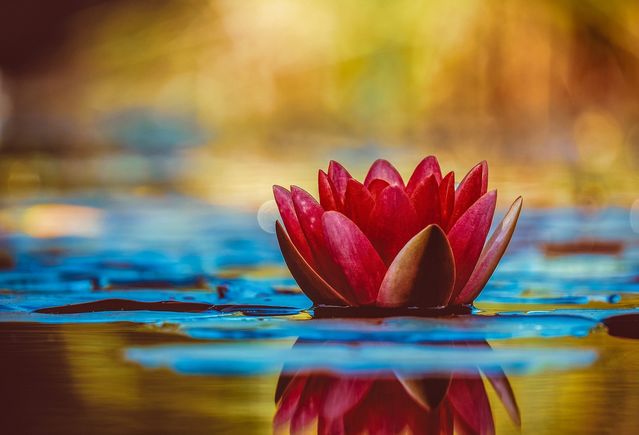Burnout
Burn Bright Not Out: Reflections from Counselors
Counselors discuss ways to feel fresh and avoid burnout during a pandemic.
Posted May 1, 2020

In a world that feels out of control, counselors continue to stand strong and carry on. We hear the cries of fear, uncertainty, desperation, and we are here to help brighten the glimmer of hope into a dazzling display of societal kindness and caring.
As helpers, we must remember to help ourselves, take down time, and recharge so that we can burn bright for others. In this piece, you will read how counselors of the Association for Multicultural Counseling and Development take conscious steps to recharge and #BurnBrightNotOut.
Spring gives us two opportunities to acknowledge mental health: April is Counseling Awareness Month leading into May, Mental Health Awareness Month. This spring brings an unprecedented situation as we deal with issues related to the COVID-19 pandemic. Some days we feel fine and other days it feels like we’re in the twilight zone. As the Midwest Region Representative of the Association for Multicultural Counseling and Development, I wanted to share ideas from fellow counselors to help you hear about how counselors are managing stay-at-home orders, isolation, working from home, and avoiding burnout.
John Harrichand, Rochester, NY, AMCD Ethics Committee Chair
Burning is an action word associated with fire, and fire is often viewed as a tool that is connected with destruction or having the capacity to destroy. Fire is also a resource that provides heat/warmth when cold, and equally important is its use to prepare food for consumption. A valuable resource, fire also indirectly fuels us with energy. As a counselor and counselor educator, during this time of crisis, I am reminded daily of the important work our mental health professionals do, providing needed care and services to an anxious and uncertain world. Counselors are a helpful resource, like fire, burning brightly as beacons of hope in the midst of despair, providing light in the midst of darkness, connection in the midst of loneliness, comfort in the midst of grief and loss, and peace in the midst of conflict. In order to engage in sustained efforts and meet the mental health demands of our society, especially during times of crisis, it is important for us as counselors and leaders to attend to our own needs, so that we can in turn, ethically care for others; as the adage goes, “one cannot pour from an empty cup.”
It is one thing to talk or write about counselor self-care, but the most important part is implementing self-care practices, and for me, this takes the form of ensuring I have clear boundaries especially in relation to my self-care practices. Exercise and sleep are a time for me to rest, tune off the outside world, organize my thoughts, recharge my body and mind, and spend quality time alone, i.e., attending to me. I know this can sound selfish and difficult for a counselor to implement, especially when we build our professional identities on filling in the gaps for others, however, I believe Katie Reed (@readkatiereed) captures self-care beautifully by stating, “self care means giving the world the best of you instead of what is left of you.” Reed’s understanding of self-care deeply resonates with me, it validates the time I spend caring for me, replacing guilt with self-compassion and acceptance. My message to all you counselors out there is to take time to do that which feeds your body, soul, and mind, you are the most important tool you have in the work we do, and we need you to be at your best so you can provide what’s best to the clients and communities in need of our services. Like fire, may we continue to burn ever brighter as instruments of hope and healing for our hurting world.
Letitia Browne-James, Orlando, FL, AMCD Treasurer
Self-care, self-care. What is that? It is one of the most important ways to prevent burnout. Whether you are a counseling student, counselor, or in another profession, self-care is an essential aspect of everyone’s wellness that often gets overlooked because people are usually too busy to take time out for themselves, even just a little bit of time. One of the silver linings in this COVID-19 pandemic is that it is giving many of us time to reflect, appreciate, and re-evaluate our lives and priorities. We are forced to be more mindful and intentional about balancing our responsibilities which often include working, caring for our families, and managing other responsibilities. Self-care looks different for everyone and includes, but is not limited to exercise, watching a funny show or movie, including in a favorite snack, talking and connecting with others, or taking some alone time. Regardless of what your self-care go-to activities are, they are very necessary to our wellness.
Personally, I do something related to my self-care on a daily basis which usually involves connecting with others and having some me-time. It has changed since the pandemic because I am more limited in what I can do currently. So I had to tap into my creativity to engage in daily self-care. I also started and finished some projects that were on hold with all of my business to aid in my self-care because they are now off my mental to-do-list. My self-care motto is if I don’t take care of myself, I cannot be fully present for anyone including family, friends, clients, students, supervisees, and colleagues. But during this stressful and uncertain time, another important part of self-care is allowing ourselves to feel what we feel and giving ourselves more of a break as we do the best we can today and in the days ahead.

Janay Whittaker, Atlanta, GA
In my counseling career thus far, I have realized that self-care seems to have two distinct but overlapping forms: a preemptive form and a responsive form. I think one of my strengths is my preemptive self-care – the way I build my fire so that it is harder to put out. One of the main ways I do that is through my boundaries. After some reflection, I recently changed my schedule to a four-day workweek, and I have maintained that schedule even though it would be easy to make modifications due to teleworking. Setting boundaries for myself and holding them even under pressure is the firewood placement that keeps my fire strong.
Another way I preemptively care for myself is through handwriting. Despite being in a digital age and teleworking, I continue to write my session notes by hand between sessions. Using pen and paper, I find that I can more quickly and effectively put down the content from one session so that I have more mental and emotional capacity for the next. This practice is like a breath that reignites any portions of fire that have dwindled.
The third way I engage in preemptive self-care is through creating community wherever I go. Even before I had the concrete awareness of its benefit to me, I was bringing people together to share in experiences and better understand one another. I now know that in creating such communities, especially communities of counselors, I surround myself with other fires that spark, fuel, and feed me and vice versa. Through engaging with and fueling one another, we individually and collectively burn brighter, like a natural wildfire bringing light, warmth, renewal, and rebirth.
Yes, I am also responsive by engaging in physical activity, having some downtime, and treating myself when I am not at my best. However, I believe it is all the things I put in place before times of stress that have allowed my fire to continue burning brightly such that I can continue to spark my fellow mental health counselors and light the way for my clients. With carefully chosen and intentionally stacked wood, sufficient oxygen, and the fuel of at least one other fire, we – counselors and clients alike – can all be strong, bright fires that are hard to put out.
Brittany G. Suggs, Hampton, VA, AMCD Member and Counselor Education Student
There is a statement that I tend to rehearse in professional and personal contexts: Joy is a choice. This statement implies two fundamental considerations and powerful motivators. The first: Joy, different from happiness, is not fleeting nor circumstantial. Rather, joy boasts an eternal existence amid warm moments and challenging seasons. While happiness tends to reflect the produce of external satisfaction and may fade in turbulent times or dreary weather, joy reverberates as a persistent beacon of hope from one’s inner core. Happiness often seeks its own gratification, while genuine joy seeks to be shared with others. The world around us may furnish moments of happiness, yet joy can neither be given nor taken: it just is.
The second: To imply that joy is a choice is to equally imply to some degree that joy is accessible through one’s internal well of attainability. Therefore, joy requires a personal commitment and embankment of intentionality. In the words of a classic, iconic, and beloved personal hero, joy presses upon the mind, spirit, heart, and being a “determination to live life with flair and laughter” (Maya Angelou).
When I consider the ways in which I engage in the exercise of “burn bright, not out,” I recall the moments of deliberate spiritual reflection, mindfulness meditation, and prayer, which provide an avenue for a renewed mindset. It is in the quiet, contemplative moments that I recollect a sense of the sweet simplicity of life, existence, breath, and blessings: a joyous reminder that the world did not fall apart nor cease its orbit in the ten minutes that I choose to be still. There, in my secret place and the blissful oasis of holistic refreshing, I reencounter joy, rekindle strength, and re-embrace the necessity of my professional calling within the sphere of counseling.
Michele Kerulis, Chicago, IL, AMCD Midwest Region Representative
Like many of my colleagues, I utilize boundaries to create dedicated time for my own self-care, like running, yoga, and time with loved ones and friends, so that I may be fully present for my clients, students, and myself. I also like to take time away from electronics to give my eyes and mind a rest. Think of ways that you can carve out time to help yourself burn bright, whether it is two minutes, an hour, or more, so that you can feel replenished during calm times and during stressful times.




